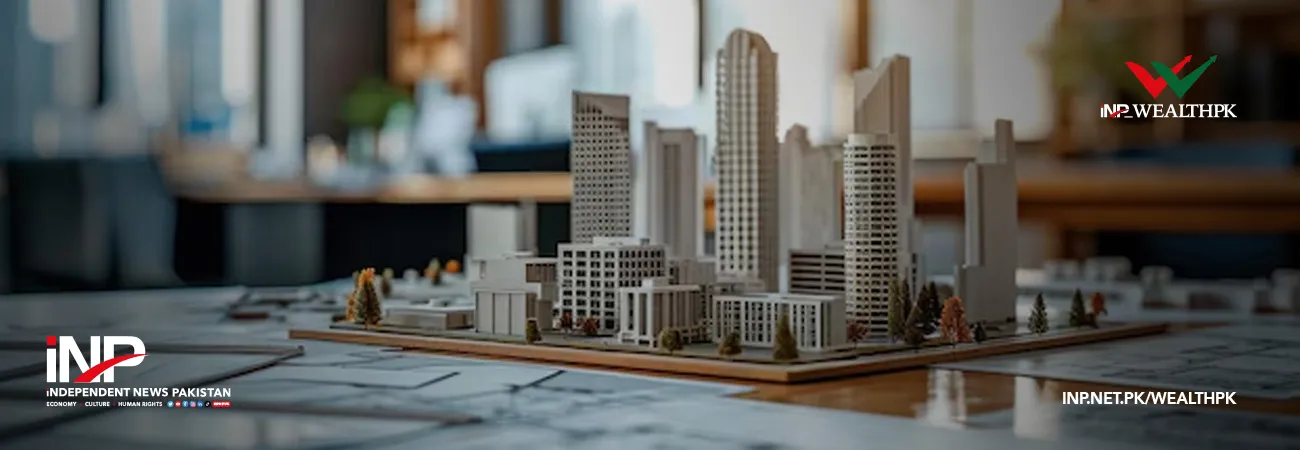INP-WealthPk
Ahmed Khan Malik
The rapid urbanization of Sindh, particularly in major cities, has outpaced the capacity of its urban infrastructure, governance, and planning. The current state of urban development in Sindh calls for a major policy shift—one that is holistic, inclusive, environmentally sustainable, and grounded in local realities, experts believe.
Over the past two decades, Sindh has seen a massive influx of people into urban areas, driven by rural-to-urban migration, population growth, and economic opportunities in metropolitan centers.
Karachi alone is home to over 20 million people and remains the economic engine of Pakistan, yet it suffers from unregulated construction, inadequate housing, traffic congestion, broken waste management systems, and a deteriorating public transport network.
At the core of the problem lies the absence of a coherent urban policy framework. “Existing development plans are fragmented, outdated, and often fail to address the needs of growing urban populations,” Mohsin Siddiqui, an urban development planner, told WealthPK.
He noted that urban governance is hindered by overlapping jurisdictions among various agencies such as the Karachi Metropolitan Corporation (KMC), Sindh Building Control Authority (SBCA), Sindh Solid Waste Management Board (SSWMB), and the Karachi Water and Sewerage Corporation (KWSC). “The lack of coordination leads to policy paralysis and inefficiencies,” he said.
One of the most pressing issues is housing, he added, noting that a vast majority of low-income groups in Sindh's urban areas live in informal settlements or katchi abadis without access to clean water, sanitation, or electricity. Despite numerous schemes and announcements, he said the government has failed to provide affordable housing at scale.
Land-use policies disproportionately favor high-end real estate development over inclusive housing, leading to social stratification and increased vulnerability for the urban poor. Moreover, urban transport remains a persistent challenge. With no efficient mass transit systems in most cities, residents rely heavily on motorcycles, rickshaws, and private cars—further worsening traffic congestion and pollution.
While the Karachi Green Line Bus Rapid Transit (BRT) system is a welcome development, its limited coverage and repeated implementation delays reflect deeper issues in planning and execution. Other cities in Sindh are still waiting for similar transport initiatives. Noman Haider, an urban development expert, said the environmental cost of poor urban planning is also substantial. He explained that unchecked construction has destroyed green belts, mangroves, and natural waterways.
He pointed out that urban flooding has become a recurring nightmare, with cities like Karachi submerged after even moderate rainfall. Climate change is expected to amplify these impacts, making it essential for urban development policies to incorporate climate resilience and disaster risk reduction. To tackle these challenges, he emphasized the need for a major policy overhaul.
First, urban planning must shift from a reactive approach to a proactive one. Sindh requires a province-wide urban policy aligned with the Sustainable Development Goals (SDGs) that integrates housing, transport, environment, and land use under a unified and coordinated framework.
Second, strengthening local government institutions is critical. Empowered and accountable municipal bodies can respond more effectively to local needs than centralized bureaucracie Lastly, citizen participation must be central to urban development.
Inclusive planning that engages communities, civil society, and urban experts leads to more equitable and sustainable outcomes. “Smart use of technology through GIS mapping, urban dashboards, and digital feedback tools can support this participatory governance,” he said.
Credit: INP-WealthPk









